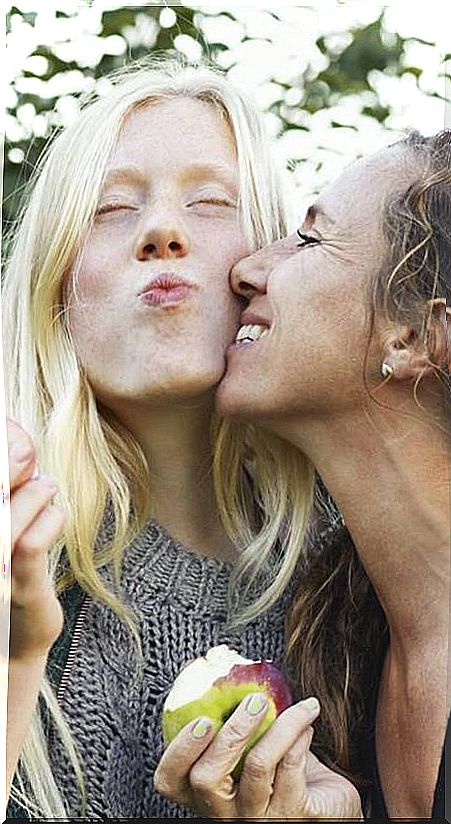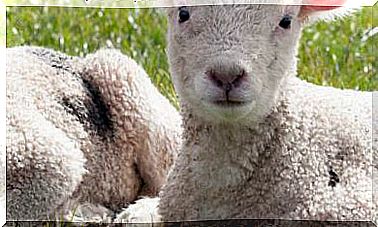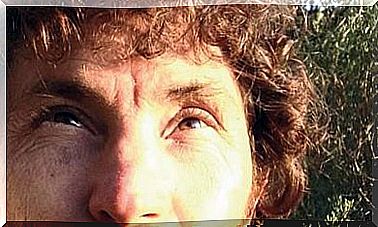Are You Sure You Are Like This? The Ballast Of The Labels
As children they told us that we were “calm” or “terrible” and that ended up configuring the “how we are”. If you free yourself from these imposed judgments, you will regain your essential self

We all have anecdotes about our childhoods related by our mother or close relatives. Opinions about what we were like as babies or toddlers have survived for many years. In fact, even today we often say that we were calm and good unlike our younger brother who was “terrible”. Or vice versa. It’s true? Were we as they describe us?
At least that was the perception our mother had of us, from her point of view. But perhaps what our mother felt hardly reflected what was happening to us.
The fact is that, from the beginning of our life, someone names how we are, what happens to us or what we want. And what the adult names (usually the mother) is usually a projection of himself onto each child. Our mother has said that we were whimsical or whiny, demanding, shy, terrific, funny or daring. Is that so? Well, it depends from what point of view you have defined it.
Forming our personality with other people’s words
Children may cry because we demand companionship, but adults interpret that we cry more than their patience will tolerate. Perhaps we children need to be understood, but parents distort this evidence by saying that we are too insistent or that we are not satisfied with what we get. This is how –when we were children– something happened to us, but that “something” was named from the interpretation of another person far from us. The worst thing is that when we are children we still do not have words to name what happens to us. We depend on the adult’s word, above all, on that of our mother.
When we were children and something happened to us, that “something” was named after the interpretation of another person far from us
As our mother names each scene or claim as something good or bad, exaggerated or meaningless, the children are putting names to each personal experience. For example: “I am terrible, I ignore it”, “I do not think before acting and I am often wrong” or “I am a crybaby (or crybaby)”. It’s true? Partly perhaps yes, but it is also possible that we display desperate ways of seeking love, even if no one is able to name that need.
A borrowed memory
So we grow. On the one hand, we accumulate a number of pleasant, difficult, complex, harmonious, hostile or comfortable life experiences. And by another lane go the “headlines” appointed by the elders. Worse still, many actual experiences have not even been named and therefore cannot be organized in the area of consciousness. For example, if as children we have taken care of our mother and our younger siblings because, in turn, she gave priority to the care of her sick mother, but no one has ever named the lack of care and attention to which we have been subjected. What are we going to remember later? Well, we will remember in great detail all the misfortunes of our mother – which have been real for her – but she will not keep memories of our childhood difficulties.
We adopt these ideas or opinions as our own and generate a set of pre-established concepts about who we are.
In those cases, something frequent happened: our mother has stated – over many years – that we were good and responsible; However, no one has named our shortcomings or our unmet needs, or the feeling of not being worthy of care. And throughout our lives we will continue to carry the feeling that we are not worthy of care or protection; on the contrary, we will know how to survive without help from anyone. Sometimes, the interpretations about who we are or our resources usually operate in the mind, but they are very distant from our emotional reality.
Later, we adopt those ideas or opinions as our own and thus generate a cluster of pre-established concepts about who we are. Then we turn them into immovable ideas about who we are and who others are. We then dictate whether we are good or bad, generous or selfish, smart or dumb, weak or lazy. These definitions are similar to those established by mom or dad in our childhood. We simply perpetuate them without realizing it.
Get rid of old ideas
An interesting exercise when we are adults is to ask ourselves each time we express an opinion: “Who said it?” Usually it is difficult for us to recognize who it was, because we have the feeling that it is ourselves who say, interpret or suffer. However, one thing is what we think from the identity we have adopted (the intelligent, the efficient, the useless, the disorderly …) and quite another thing is what we feel from that mysterious place – not so conscious – that it is our inner world, or what we might call “the self.” We will verify that, although we are already adults, the point of view is usually childish; that is to say, completely tinged with what we have believed to be children.
At this point an important problem appears that concerns everyone: the opinion we have about each thing may have been organized through the glass of someone we trust or project a supposed knowledge. When we were children, it would not have occurred to us to distrust our parents’ point of view, even if they punished or abused us. Today we do the same, we project in a less perceptible way the supposed knowledge in entities that inspire us confidence.
Our credulous innocence
If this infantile mechanism were not so forceful, we would not massively believe what appears in the media. However, almost any news, rumor, opinion or complaint that appears in the newspapers or on television leaves us gullible as if we were children. In the same way, we organize ideas, concepts, judgments, beliefs and convictions that we defend with passion and pride based on assumptions that may be valid from some point of view, but that are rarely universal truths, and that also – it is the most serious thing – can be totally distanced from the essential being of each one of us.
We take general opinions as our own and defend them as if we had something to do with them
We are not used to passing general opinions through the sieve of our personal perceptions. We assume them as our own and defend them as if we had something to do with them. I emphasize perceptions or intuitions because thoughts are often colored by external knowledge and, therefore, they are not always reliable. They are usually borrowed thoughts. This phenomenon is multiplying with globalization: individuals from areas with very different realities end up having the same opinion. The mass media are possibly the great organizers of individual opinions … which are not such.
However, all adults are responsible for holding ideals about how to live, what to think, how to educate or what to long for – just as our parents did. If we honestly review many of the beliefs that we defend, we will find that our own intellectual support is scarce. And it is not for lack of information. Since the expansion of the Internet, if there is something left over in the world, it is access to information. The difficulty lies in the lack of autonomy of thought.
Under this dynamic, people end up being incredibly conventional, although we believe otherwise, for example, regarding politics. Political issues tend to concern all of us citizens – since they have a notorious influence on our daily lives -; However, we tend to act en masse, guided by what advertising dictates, money dictates, and marketing dictates.
Finding new words
Without autonomous thinking to allow us to decide what to think, what to do, and what alternatives to give, we will continue to believe that we have original ideas when we are probably traversing worn out furrows of thought. The groove has an advantage: it has already been tested. Getting out of it requires a share of courage, vitality and risk that few of us are willing to take.
How can we create autonomous thinking? From my point of view, this process can only be started by honestly acknowledging the discourse that we have adopted in our childhood. To do this, it is necessary to do regression work, make use of memories, allow our ingrained beliefs to fall, be willing to accept reality when there was lack of love, abuse, emotional deficiencies or abandonment. It is mandatory to look with eyes wide open at our emotional history. It doesn’t matter if she was pretty or ugly, happy or suffering. It was real. Then, it would be necessary to ask for help to rewrite our history, naming our experiences in our own words and giving them a place. Only after this process – to the extent that we add words with a new meaning in tune with our real experiences – can we gradually designate each event or situation as if it were the first time.









